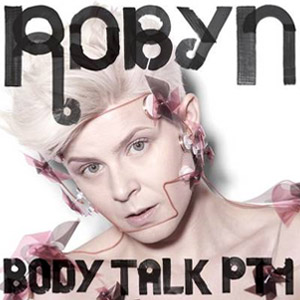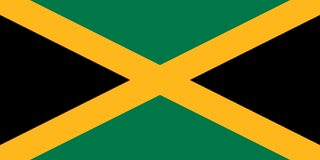See also
- Lady Saw (born 1968), Jamaican reggae singer known as the queen of dancehall
Dancehall Queen is a 1997 Jamaican film.
Dancehall Queen may also refer to:

Moses Anthony Davis, better known by his stage name as Beenie Man, is a Jamaican dancehall deejay.

Rodney Basil Price, known as Bounty Killer, is a Jamaican lyricist and reggae and dancehall deejay. AllMusic describes him as "one of the most aggressive dancehall stars of the '90s, a street-tough rude boy with an unrepentant flair for gun talk". He is considered one of the best dancehall lyricists of all-time.
Dancehall is a genre of Jamaican popular music that originated in the late 1970s. Initially, dancehall was a more sparse version of reggae than the roots style, which had dominated much of the 1970s. In the mid-1980s, digital instrumentation became more prevalent, changing the sound considerably, with digital dancehall becoming increasingly characterized by faster rhythms. Key elements of dancehall music include its extensive use of Jamaican Patois rather than Jamaican standard English and a focus on the track instrumentals.

Sean Paul Ryan Francis Henriques is a Jamaican rapper and singer who is regarded as one of dancehall and reggae's most prolific artists.

Dancehall Queen is a 1997 indie Jamaican film written by Suzanne Fenn, Ed Wallace and Don Letts, starring Audrey Reid, who plays Marcia, a street vendor struggling to raise a bad-tempered daughter, Tanya. Directed by Don Letts and Rick Elgood.
Christine Chin, better known by her stage names Sasha and Sista Sasha, is a Jamaican dancehall recording artist, presently recording gospel music.

"Cobrastyle" is a song performed by Swedish band Teddybears, featuring Jamaican singer Mad Cobra. The song was released on their 2004 album Fresh, and reissued on their 2006 album Soft Machine. It was released as a single on 6 June 2006.

Janice Fyffe, known as Lady G, is a Jamaican dancehall and reggae deejay. She is widely recognised as a dancehall veteran and pioneer.

Cherine Tanya Anderson is a Jamaican dancehall/reggae vocalist and actress.
A dance hall is a room for dancing.

Body Talk Pt. 1 is the fifth studio album by Swedish singer Robyn, released on 11 June 2010 by Konichiwa Records. It is the first part of the Body Talk series, which consists of three mini-albums. The only single from the album, "Dancing On My Own", was released on 1 June. Robyn promoted the album with the All Hearts Tour she co-headlined with Kelis. Body Talk Pt. 1 reached number one in Sweden and number four in Denmark and Norway. In the United States, it peaked at number three on Billboard's Dance/Electronic Albums chart.

The Body Talk Tour is a concert tour by Swedish singer-songwriter Robyn. The tour was announced in conjunction with the release of her sixth studio album, Body Talk Pt. 2. Previously, Robyn toured the United States in the summer of 2010 with the All Hearts Tour. The tour began on October 7, 2010.
Adidja Azim Palmer, better known as Vybz Kartel, is a Jamaican reggae and dancehall recording artist, songwriter, record producer, entrepreneur and convicted murderer. Among his various nicknames, he is referred to as Worl' Boss or Teacha. As summarized by Rolling Stone, he "attained folk-hero status in Jamaica with provocative lyrics, and a mischievous public persona", and "few have captivated [the dancehall] audience – or offended the sensibilities of its detractors – as consistently and thoroughly as Kartel."

"Dancehall Queen" is a song by Swedish recording artist Robyn, taken from her fifth studio album, Body Talk Pt. 1 (2010). The song was written by Klas Åhlund, who produced it with disc jockey Diplo. The initial writing and production of the song arose from a discussion by Robyn, Diplo and Åhlund about Ace of Base. The song features a dancehall and reggae-infused sound with 1980s synths and bass. It was released as a promotional single before the album was launched in April 2010.

Andrae Hugh Sutherland, known professionally as Popcaan, is a Jamaican singer.
Chevelle Franklyn is a Jamaican reggae and gospel reggae singer.
Carlene is a girl's given name, a variant of Charlene, that reached a peak of popularity in America in the 1950s. US birth records show over 12,000 birth names as Carlene from 1916 to 1972 with a peak of 371 birth names in 1955.

Grace Latoya Hamilton, known professionally as Spice, is a Jamaican dancehall recording artist, actress and businesswoman. Often cited as the "Queen of Dancehall", Spice is recognised as one of the most prominent dancehall artists in the world. She is known for her aggressive flow, musical versatility and outspoken lyrics. Spice first gained recognition after performing at the annual dancehall festival Sting in 2000. She released her first single "Complain" for record producer Dave Kelly's Madhouse Records in 2003. She continued release singles "Right There" and "Hype", even being featured on songs with Jimmy Cliff and Beenie Man in 2004 and 2006 respectively.

Despite Jamaica never having a very strong film industry, the island has produced notable films from the 1970s onwards. The most critically acclaimed film is The Harder They Come (1972), by Perry Henzell, which received international acclaim. The Jamaican government and various private citizens have tried to promote the creation of new films by the creation of certain agencies such as the Jamaican Film Commission, and film festivals such as the Reggae Film Festival. The Harder They Come sparked trends that were apparent in following films such as Dancehall Queen and One Love, both directed by Don Letts and Rick Elgood.
Dancehall pop is a sub-genre of the Jamaican genre dancehall that originated in the early 2000s. Developing from the sounds of reggae, dancehall pop is characteristically different in its fusion with western pop music and digital music production. Dancehall pop is also different from dancehall in that most songs use lesser Jamaican Patois in lyrics––allowing it to be globally understood and consumed. It also incorporates the key pop music elements of having melodies, hooks, and the verse-chorus format. Additionally, the genre moves away from the reggae and roots reggae music origins in social and political protest, now lyrically centering on partying, dancing, and sexuality.